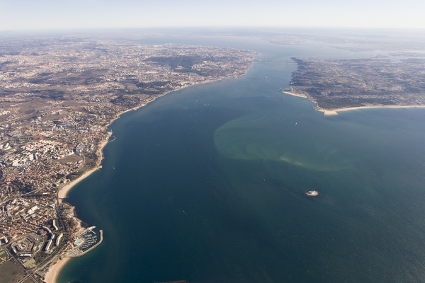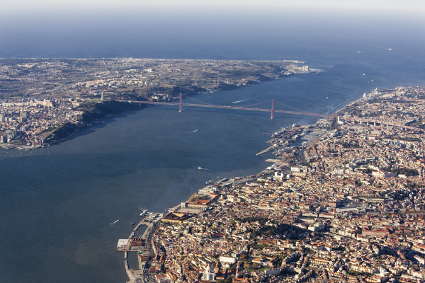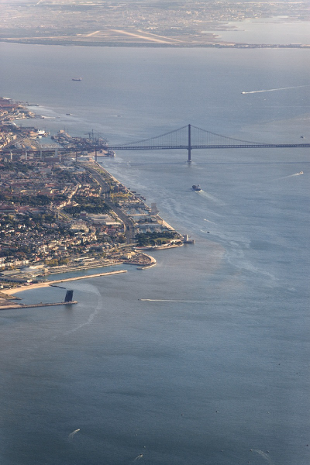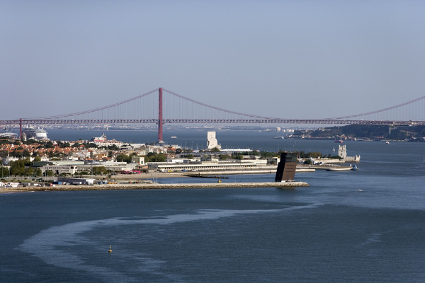Este website utiliza cookies. Ao continuar a navegação está a aceitar a sua utilização.
Caso pretenda saber mais, consulte a nossa política de privacidade.
In 2007, APL, S.A. developed its Sustainable Development Strategy, based on its Sustainability Vision that follows 4 fundamental principles:
- The principle of SOCIAL responsibility;
- The principle of ENVIRONMENTAL responsibility;
- The principle of ECONOMIC sustainability;
- The principle of TRANSPARENCY.
The principle of SOCIAL responsibility is embodied in initiatives aimed at maintaining a relationship of well-being and sharing with employees, clients, suppliers, and local communities.
Employees are a priority. We recognize them as our support and added value. Thus, we take into consideration the need for permanent recognition of their professional skills.
The Port of Lisbon and the Tagus Estuary are the common feature that connects 11 municipalities, which have been twinned with the experience of their people for centuries. It is in this context that we intend to continue to enrich this relationship, constituting an open space for the community and supporting initiatives in the education, sport, culture, and leisure areas.
As responsible for the management of the port, we aim to involve our clients and suppliers, encouraging them to share our principles. Therefore, we want to show them, in an unequivocal and transparent way, how we manage our commitments, in order to establish clear and shared objectives that improve port performance.
The principle of ENVIRONMENTAL responsibility aims at an increasingly better integration of the Port in its urban and natural surroundings, allowing the development of its activity and the mutual integration of interests, in a constantly more demanding future context.
The port of Lisbon is part of the Tagus estuary, the largest wetland in Western Europe, with important natural values, species, and habitats that need to be preserved. This estuary gathers the country’s largest metropolitan area, with about 25% of the national population, whose quality of life is very important. This reality is a necessary and sufficient reason for APL, S.A. to adopt a proactive attitude towards the protection of the estuarine environment.
The principle of ECONOMIC sustainability aims at guaranteeing budgetary autonomy, enshrined in the Statutes, and APL, S.A.’s ability to create value for current and future generations. As an administrative entity, APL, S.A. must promote the port competitiveness and its increasing social-economic importance at Iberian level, privileging the rational use of its resources, return on equity and investment on the continuous modernization of the Port of Lisbon.
The principle of TRANSPARENCY is the natural and open way in which we develop our activities, how we face our ambitions and how we communicate the results we are achieving.
It is also the way in which we openly discuss ideas and projects of common participation between the port and the surrounding communities.
Vision
At APL, S.A. we understand that the sustainable development of the company’s business will be achieved, as long as we are able to ensure the best performance practices of the port activity, both at workforce and organization level, and at clients, suppliers and other partners level, in compliance with the principles of social and environmental responsibility and transparency, with a deep respect for the interests of current and future generations.
This commitment will allow us to become a reference within the set of European ports, and, therefore, to constitute ourselves as a cluster of wills and of wealth creation for the companies that directly or indirectly intervene in the port business.
Strategy
We believe that future generations have the legitimate right to be able to enjoy a European or world-class port, with an environment that provides stability and the best living and working conditions. Therefore, we wish to develop a port of international quality, with a positive social-economic impact, and that represents an attractive area for hosting diverse activities, assisted by a good working environment and in sustainable operational conditions.
Our commitment to sustainable development is reflected in the following key areas:
A. Stakeholder involvement,
B. Safe and clean navigation,
C. Valuation of the Tagus Estuary,
D. Port-cities relationship
Stakeholder involvement
We believe that employees and partners are essential to the port development in its multiple aspects. For this reason, we invest in two-way communication with employees and partners, promoting information, training, and active participation in the life of the company.
We are aware of the port community’s importance for the business development; that is why, we aim at defining strategies that support the business growth, incorporating our partners’ goals, expectations, support, and proposals.
The involvement with the communities is motive for a specific mention: port-cities relationship.
We are sensitive to the expectations of other stakeholders, through communication channels that are always open and that we wish to improve.
Safe and clean navigation
Maritime transport is the form of transport that presents the best performance in terms of energy and environmental sustainability. Therefore, ports assume an important strategic role in the development of integrated and more efficient transport systems.
We are committed to ensure the quality and the safety of port maritime traffic. As such we positioned ourselves at the forefront of the use of technological means to assist navigation. This commitment allows us to guarantee respect for the marine and port environments and for the surrounding communities, enhancing business development.
We are firmly committed to provide, in an increasingly effective and efficient manner, services to navigation in order to prevent and to minimize incidents of sea pollution, as well as to increase control over the collection of ship waste, ballast water discharges, dangerous goods handling, and gas emissions from ships.
At the same time, we want to modernize and adjust our capacity to respond to emergency situations, within the framework of the National System of Civil Protection.
Valuation of the Tagus Estuary
We are aware of the main biophysical characteristics of the Tagus
estuary, the largest in Europe and with great ecological value, constituting a heritage whose valuation, in all its aspects, is fundamental. Therefore, we want to have an increasingly deeper knowledge of the dynamic system balance and adopt management practices that promote its preservation and improvement.
Issues related to the hydrodynamic balance of the Tagus’ bars and adjacent coastal zones, as well as the increase in the environmental quality of the estuary, deserve our best attention.
We seek to minimize the existing environmental liability, establish commitments based on environmentally friendly management strategies, and promote tourism, in close collaboration with the other entities responsible for the estuary.





